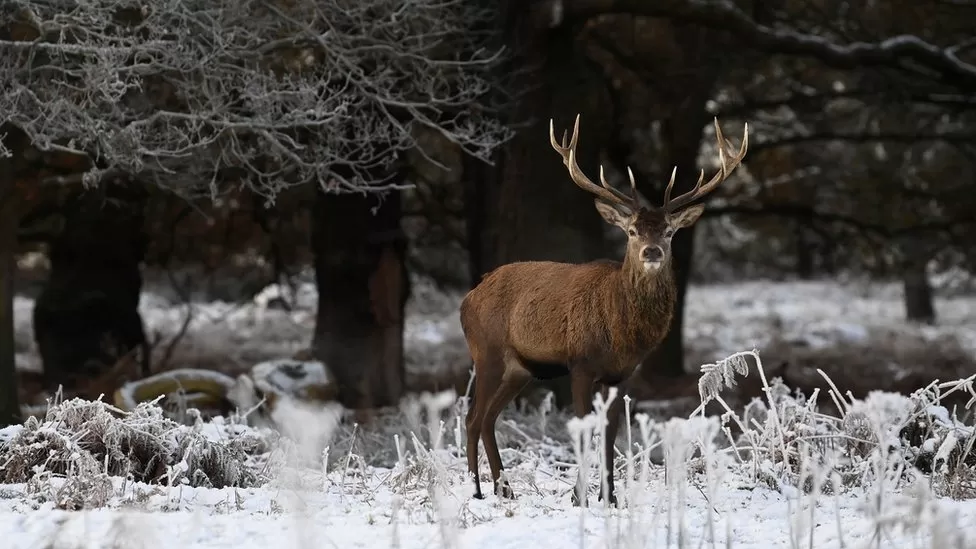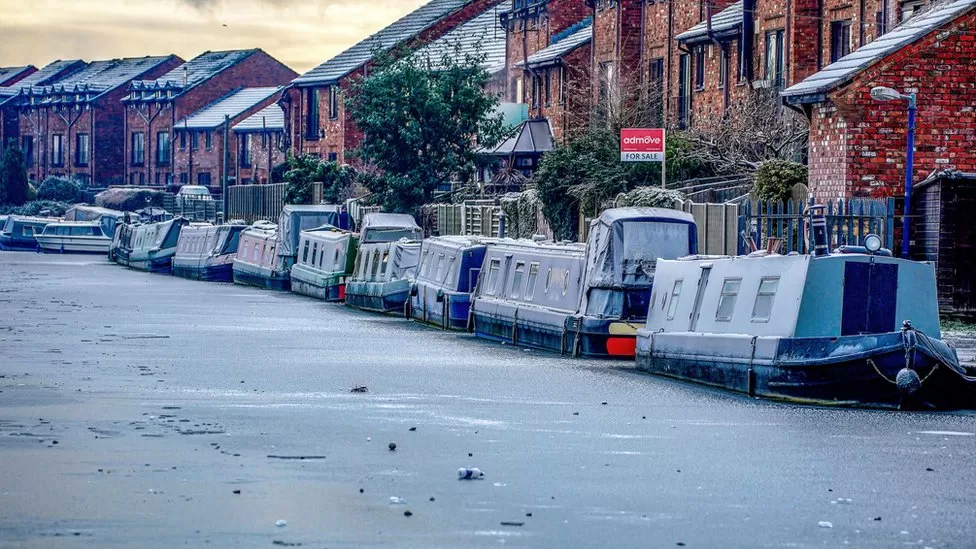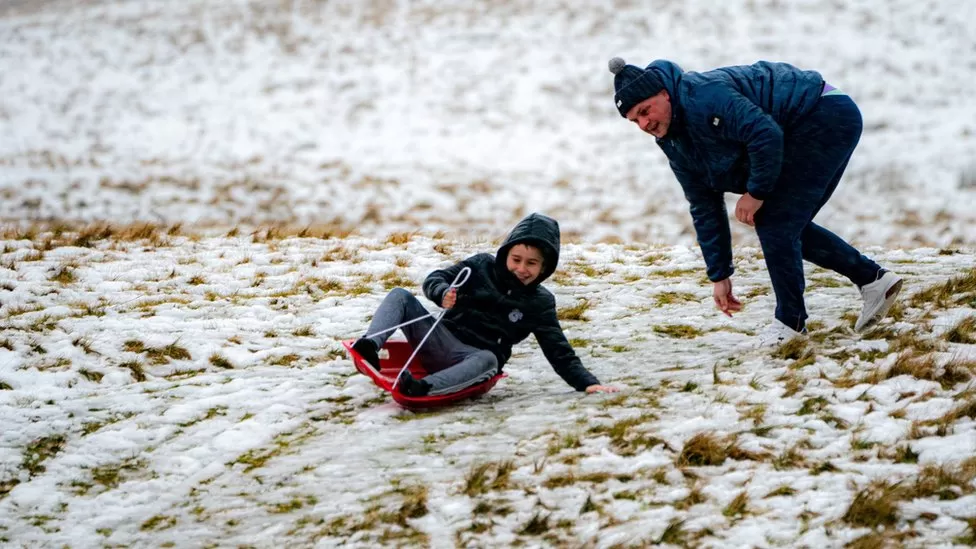The UK has seen its last day of the cold snap, before temperatures soar to highs of 14C (57.2F) on Monday. The freezing temperatures – which caused travel disruption and power cuts – is ending on Sunday evening. Warnings for snow, ice and rain were in place for much of the country on Sunday – including an amber alert for ice in parts of northern England.
Temperatures are expected to jump by 15 degrees within 24 hours as a result of warmer air coming from the Atlantic. BBC Weather said the bitterly cold, frosty weather was turning “to something much milder, wetter, and windier”. Presenter Jennifer Bartram said: “The big swing in temperatures will be noticeable on Monday, and though it is unusual to see such a dramatic change, it’s not unheard of.

“The change is all linked to where our air is coming from: we’re replacing bitterly cold Arctic air with something much milder from the Atlantic,” she added. Between 2 and 3mm of ice on untreated surfaces was expected on Sunday as snow and ice continued across parts of the UK. Presenter Ms Bartram said the rain on Sunday did signify milder weather, but “it will fall as sleet, snow or freezing rain” – especially across northern England. Police forces across England have put out urgent pleas after receiving many calls about people on frozen water. Last week, four boys aged six, eight, 10 and 11 died after plunging into icy waters in Solihull. Both night time and daytime temperatures are expected to increase over the next couple of days – with maximum daytime temperatures across the UK ranging from 11C to 14C, according to the Met Office’s Marco Petagna.

Mr Petagna said temperatures in the low teens were not uncommon at this time of year, but the contrast of conditions going from very cold to very mild in a day or two is quite unusual. He said a leap of “15 degrees or more” was expected in some snow-covered areas on Monday, he said. The jump in temperatures could cause difficulties, with Scottish Water reporting it had seen a rise of up to 150% in burst pipes in recent days as sub zero temperatures tuned to a rapid thaw. This led to an extra 100 million litres of water a day passing through the pipes. Welsh Water said there had been a number of leaks due to a “rapid thaw” – with one pub facing a huge clean up after pipes burst and water poured in from the ceiling.
There are five flood warnings in place for south-west England, including in south Devon, from late Sunday through to Monday. This warning means flooding is expected. There have also been 34 flood alerts issued across the country. Peter Jenkins from Water UK said the recent freezing weather had been “disruptive” and urged people to check their water pipes are well insulated. “The last thing we want is for people to experience further disruption as temperatures rise this weekend, putting many homes at risk of burst pipes due to freeze-thaw.” The BBC is not responsible for the content of external sites.
The Met Office’s current weather warnings include yellow alerts on Sunday for:
- Snow and ice across Scotland and northern England until 21:00
- Heavy and persistent rain across the south west of England and southern Wales from 18:00 until 06:00 on Tuesday

An amber warning for ice was also in place for north east and north west England, East Midlands, West Midlands and Yorkshire and Humber until 20:00. In the last week, the country has been experiencing a severe cold snap with overnight temperatures dropping to lows of -10C to -15C. Braemar in Scotland dropped to as low as -17.3C on Tuesday – the coldest temperature since February 2021.
The 99* had earlier issued a level three cold weather alert for all of England until midnight on Sunday which it warned could “increase the health risks to vulnerable patients and disrupt the delivery of services”. The severe conditions in recent days has led to serious damage and disruption. In Shetland, the 5,289 homes that lost power at the start of the week have now had their supplies restored. A major incident was declared on Tuesday after snowstorms brought down power lines. In Wales, the ambulance service said it had been experiencing a rise in callouts, partly caused by the “extreme weather”.
![]()





